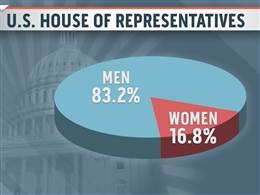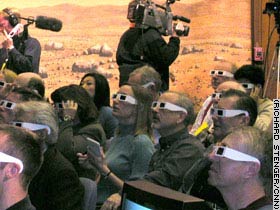
It's become very fashionable to talk about the concept of "food deserts" as an explanation for why so many Americans, especially poor Americans, don't eat healthy food and are overweight. The thinking goes, if poor people had access to fresh produce and other healthy food, they would eat better, and be less fat. But they don't have access, so they eat Ding Dongs and pork rinds and whatever you can get at a liquor store snack rack.
Personally, I think this line of thinking is garbage, which is why I'm so psyched about an article in today's Times about the myth of the food desert and access/inaccess to healthy food as a predictor of weight problems. Two new studies basically debunk two big ideas that went into the "food desert" myth: that poor urban neighborhoods don't have grocery stores, and that living close to a grocery store makes it less likely that you'll be overweight.
Turns out there are just as many grocery stores in poor neighborhoods as in rich ones, and proximity to a grocery store has no bearing on thinness or fatness. The scientists involved didn't propose an explanation for this, but I have a few of my own. First, EVERYBODY LOVES TO EAT CRAP. Also, JUNK FOOD COMPANIES SPEND BILLIONS ON ADVERTISING.
It really bugs me when people in positions of power talk about how to change poor people's eating habits, as though poor people are powerless to make good decisions about what they want, and if a kind benefactor just paid for a bunch of green carts selling fruits and vegetables (like we have all over NYC now) poor people will gratefully enrich their diets with wholesome produce and stop having diabetes and heart disease.
Look at rich people, who supposedly have ample access to fruits and vegetables and pretty much anything else they want! Have you seen a menu at a fancy restaurant lately? With all the expensive and totally unhealthy pork belly hash and the duck fat tater tots and dates wrapped in bacon and peanut butter and, God help us, fried pizza?
The fact is, whether we have nice produce at our grocery stores or not, and whether we shop at Whole Foods or at a corner store, we as humans still love to eat greasy, fatty, sugary garbage. We can't help it. As Cintra Wilson once wrote, left to our own devices, people would consume nothing but bacon, cans of whipped cream, and Starburst.
The other problem is grocery stores themselves--even in rich neighborhoods in New York, I see anemic looking pink tomatoes and gnarly wilted lettuce and shriveled green beans all the time. Gristede's sucks whether it's in Washington Heights or the West Village. It's not like "nice neighborhood" or "grocery store" means "decent produce" in this city. And you can bet every store's shelves are well stocked with an impressive selection of Pringles™.
But changing people's behavior is a whole lot harder than just installing some green carts, if you're concerned about healthy eating. Plus it might mean looking critically at how rich people behave, which I seriously doubt is any better than poor people in terms of Cheetos™ consumption. Maybe the only thing that unites Americans now is potato chips.





